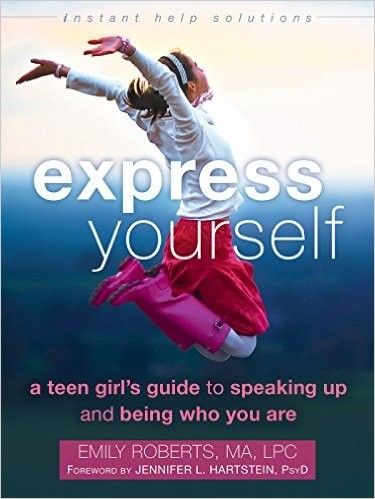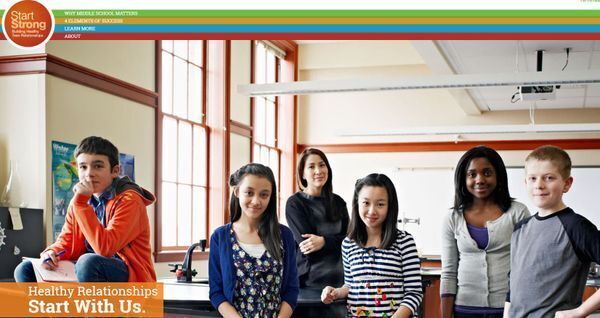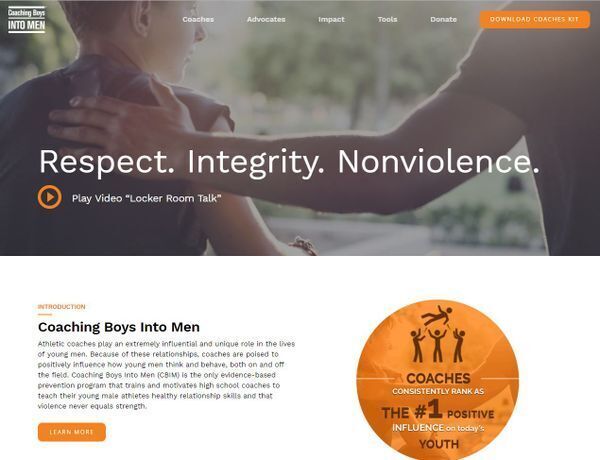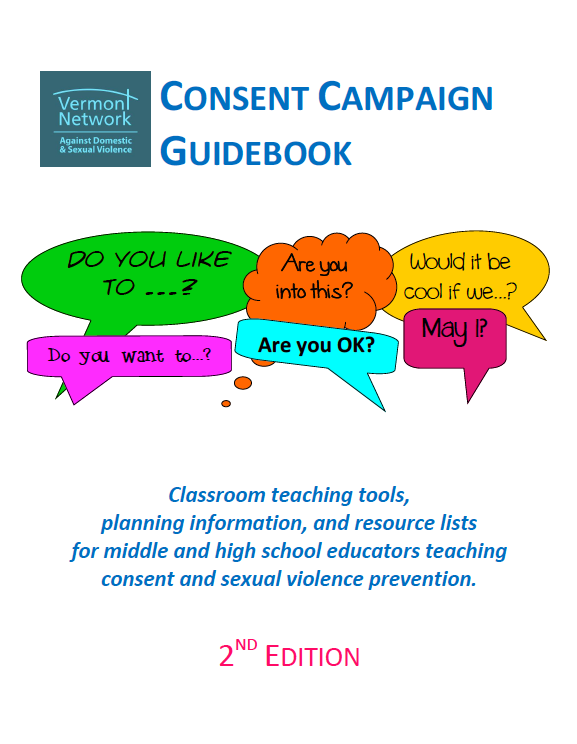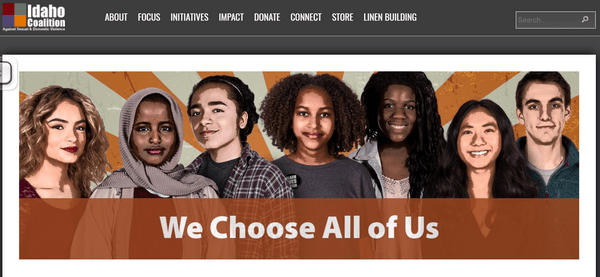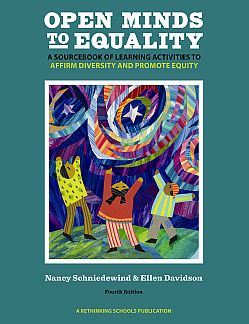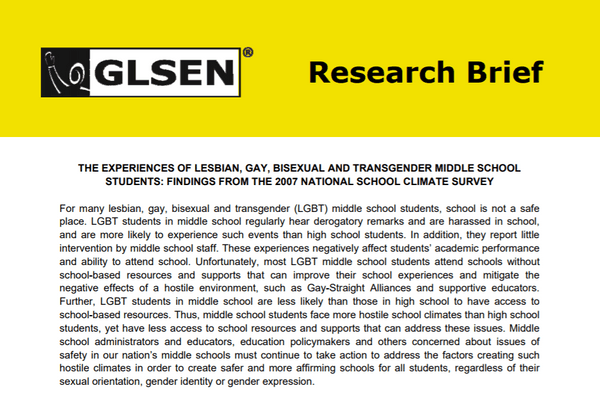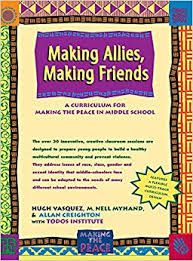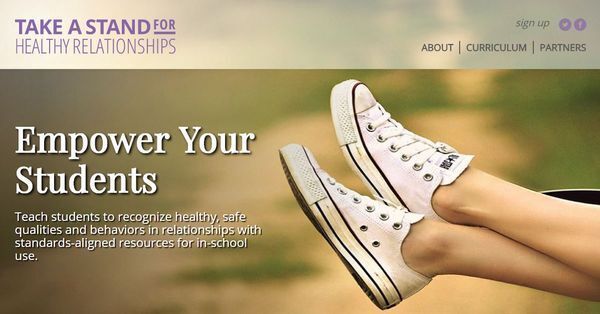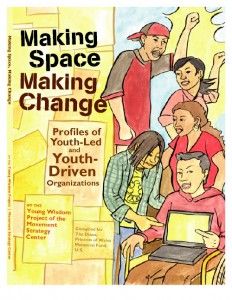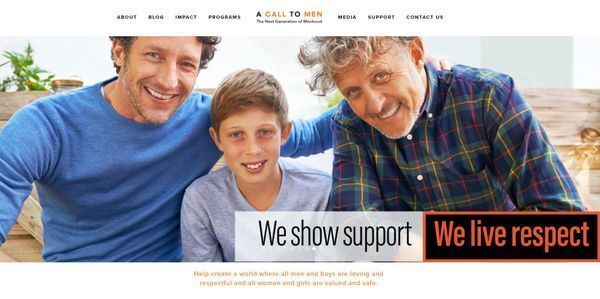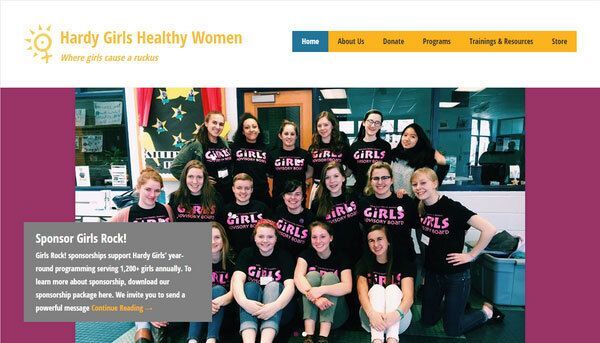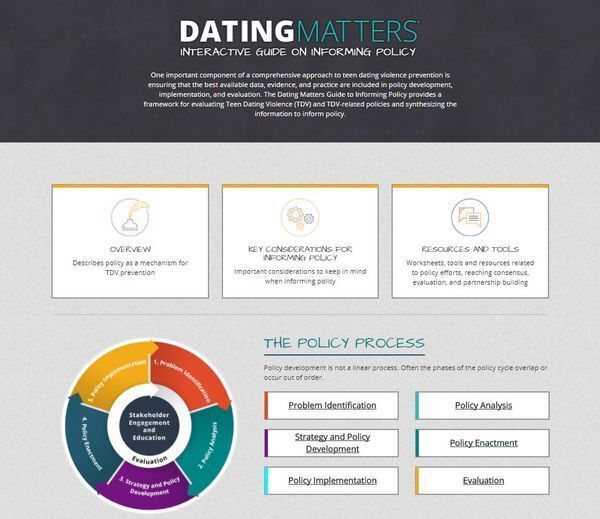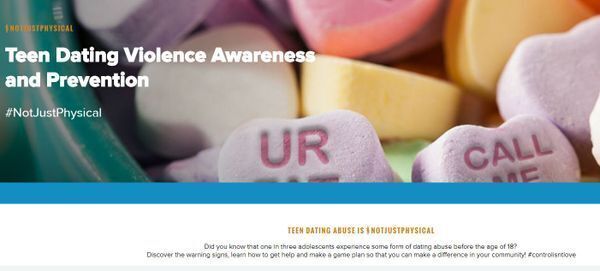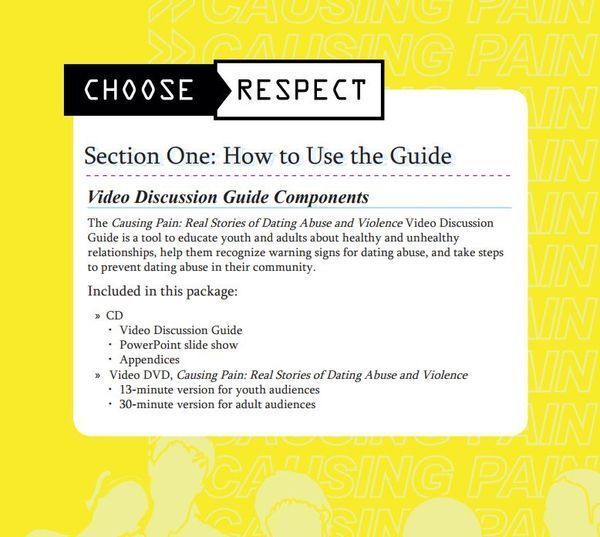-
Using techniques based in proven-effective dialectical behavior therapy (DBT) and cognitive behavioral therapy (CBT), this book will show you how to have positive interactions with others, deal with difficult emotions that can arise from bullying or dealing with “mean girls," and easy-to-use strategies that will boost your self-esteem and confidence.
-
The online toolkit provides resources and tips from Start Strong on successful healthy relationships programming, such as: strategies for using popular culture to engage youth, how to leverage social media in healthy relationship education, creative ways to engage parents and other youth influencers, information about why middle school matters for preventing teen dating violence. Start Strong is premised on the idea that middle school is the optimum time to be engaging students in a discussion about healthy relationships behaviors. Strategies were gleaned from Start Strong sites across the country and include prevention activities, advice, and insights from prevention practitioners. This user-friendly collection can be accessed and utilized by educators, health professionals, violence prevention practitioners, community leaders, and anyone who works with youth.
-
Athletic coaches play an extremely influential and unique role in the lives of young men. Because of these relationships, coaches are poised to positively influence how young men think and behave, both on and off the field. Coaching Boys Into Men (CBIM) is the only evidence-based prevention program that trains and motivates high school coaches to teach their young male athletes healthy relationship skills and that violence never equals strength.
-
The Consent Campaign guidebook is a tool for middle and high school educators and students. There are lesson plans for 7th/8th grade audiences and 9th/10th that address the core concepts of consent through a health promotion framework. The guidebook also includes strategies for moving the education out of the classroom and into a full school campaign. The materials use approaches that are considered best practice prevention methods, work across the social ecology and are grounded in health education standards.
This tool was designed to encourage schools to mount educational campaigns that go beyond the classroom. -
Our Gender Revolution uses conversations to explore concepts of gender, inequality, and gender violence and to engage young people as social change agents. The Our Gender Revolution Conversation Guide was designed for activists, advocates, teachers, and community members working to end gender based violence. Ideal for the classroom and/or community groups, the guide was created to help those who are interested in sparking social change to end gender based violence through conversations with high school students (ages 14-18). The Guide includes tips for facilitators on getting started, recruiting youth, community assessment and a vision for empowering youth to be movement leaders.
-
Open Minds to Equality is an educator’s sourcebook of activities to help students understand and change inequalities based on race, gender, class, age, language, sexual orientation, physical/mental ability, and religion. The activities also promote respect for diversity and interpersonal equality among students, fostering a classroom that is participatory, cooperative, and democratic. Learning activities are sequenced to build awareness and understanding. This book is an essential resource for teachers, leaders in professional development, and curriculum specialists. This fourth edition of Open Minds to Equality contains a wealth of updated information and resources. New lessons address immigration, anti-Muslim discrimination, gender identity, and bullying. The comprehensive, annotated bibliography has been revised and updated.
-
The National School Climate Survey is our flagship report on the experiences of lesbian, gay, bisexual, transgender, and queer youth in our nation’s schools. Our report includes information on LGBTQ middle and high school students’ experiences with discrimination, biased language, and availability and utility of supportive school resources.
GLSEN’s Local School Climate Survey is a free online survey tool for students, educators and other advocates to use to collect data on students’ experiences in their local school communities. Results from your survey can be used to advocate for safer and more inclusive programs and policies in your local schools and communities. -
Making Allies, Making Friends is a flexible, multi-track curriculum design which includes over 30 innovative, creative classroom sessions designed to prepare young people to build a healthy multi-cultural community and prevent violence. They address issues of race, class, gender and sexual identity that middle-schoolers face and can be adapted to the needs of many different school environments. Designed for students in grades six to nine, this curriculum offers more than 30 innovative class sessions that address diversity (racial, ethnic, and sexual) and violence issues. Each session contains a warm-up exercise, theme information, value clarification, and an experience or activity. Journal writing, critical thinking about history textbooks, role-playing, storytelling, poetry/rap, photographs, illustrations, tables, and whole-school research projects are just some of the tools presented in this hands-on guide to defending against violence in middle school.
-
Take A Stand for Healthy Relationships is an exciting new program from the National Coalition Against Domestic Violence (NCADV) and Discovery Education that teaches students how to understand and build healthy relationships. New standards-aligned curriculum will encourage important skills in communication and self-awareness. With self-paced modules and lesson plans, students will garner important skills in communication and self-awareness. Students will learn to recognize healthy and safe qualities and behaviors in relationships. They will explore how to effectively and safely advocate for themselves and others to help them build healthy relationships. Accompanying educator guides provide school staff with strategies to support students through the critical content.
-
This is the only available guide for understanding youth-led organizations and their place in the contemporary youth movement. Follow the stories of five youth-led and youth-driven organizations from around the U.S. – how they started, built youth leadership and power, dealt with challenges, and made real change in their communities. This report is for all young organizers and their allies who want to put their principles into practice and invest in the next generation!
-
A Call to Men created the Live Respect: Coaching Healthy and Respectful Manhood program to help mentors educate and encourage middle and high school boys to examine their attitudes and beliefs about masculinity. The goal of the Live Respect program is to provide educators and mentors with tools to help raise awareness about gender stereotyping and prevent the use of violence and abusive behaviors, while teaching nonviolent and respectful behavior.
-
Hardy Girls works at creating a hardiness zone for girls that includes giving her the control over her environment, showing her commitment from a community and asking her to commit in return, and then challenging her to create change. First, we have to start with critical thinking. Without that, it’s easy to think the individuals are at fault instead of looking at the whole system which ignores girls’ brilliance. Since day one, Hardy Girls programming, resources and services have been powered by the latest research in girls’ development.
-
This Guide and website are provided for informational purposes only. Note that certain restrictions apply to the use of CDC funds for impermissible lobbying.
-
New York State joins the nation in marking February as Teen Dating Violence (TDV) Awareness and Prevention Month. Check out these ideas and get involved to prevent dating abuse in your community. You may help save someone’s life.
-
CHOOSE RESPECT was an initiative launched nationally in May 2006. The materials sought to help adolescents form healthy relationships to prevent dating abuse before it starts. The initiative reaches out to adolescents, ages 11 to 14, at a time when they are still forming attitudes and beliefs that will affect how they are treated and how they treat others. The initiative also connects with parents, teachers, youth leaders, and other caregivers who influence the lives of young teens.


